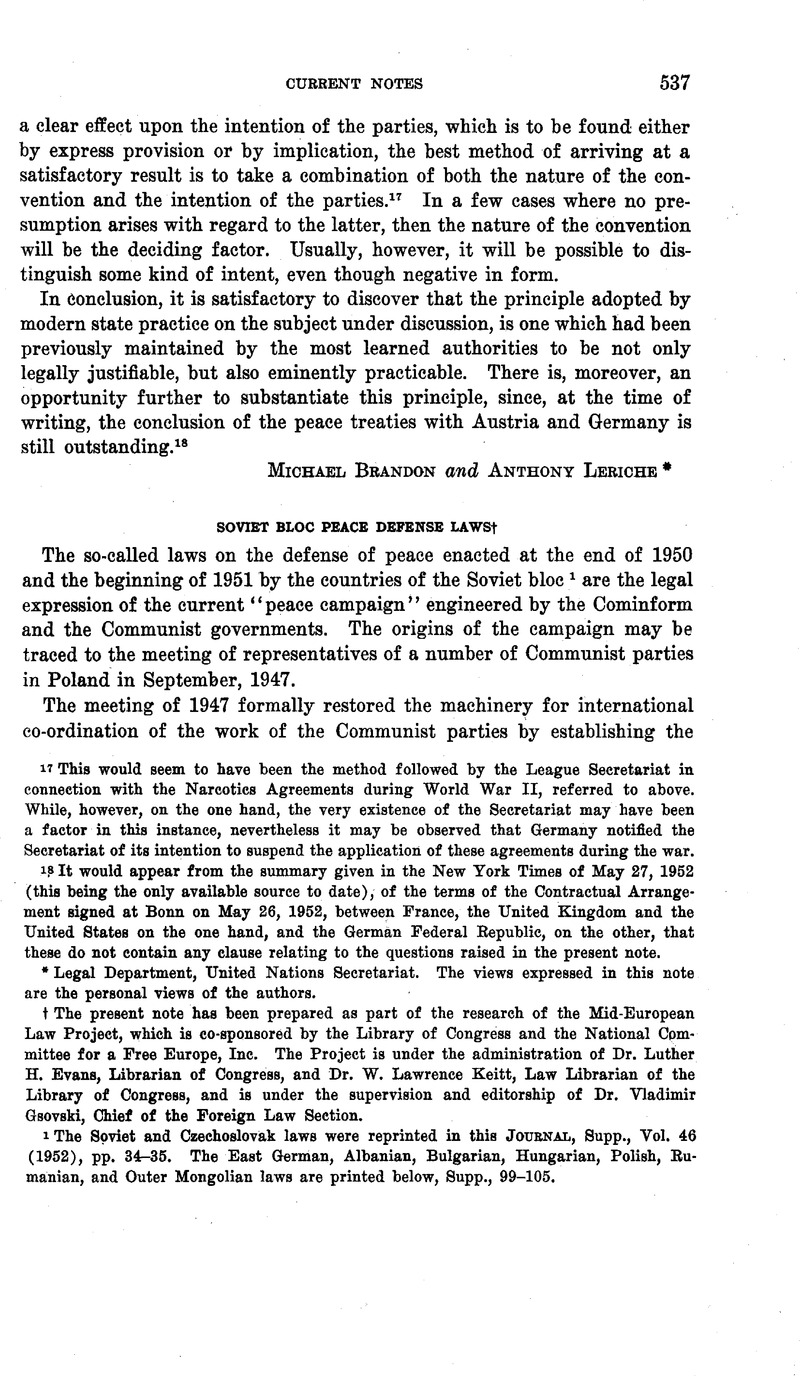Article contents
Soviet Bloc Peace Defense Laws†
Published online by Cambridge University Press: 20 April 2017
Abstract

- Type
- Current Notes
- Information
- Copyright
- Copyright © American Society of International Law 1952
Footnotes
The present note has been prepared as part of the research of the Mid-European Law Project, which is co-sponsored by the Library of Congress and the National Committee for a Free Europe, Inc. The Project is under the administration of Dr. Luther H. Evans, Librarian of Congress, and Dr. W. Lawrence Keitt, Law Librarian of the Library of Congress, and is under the supervision and editorship of Dr. Vladimir Gsovski, Chief of the Foreign Law Section.
References
1 The Soviet and Czechoslovak laws were reprinted in this Journal, Supp., Vol. 46 (1952), pp. 34–35. The East German, Albanian, Bulgarian, Hungarian, Polish, Rumanian, and Outer Mongolian laws are printed below, Supp., 99–105.
2 Informatsionnoe soveshtanie predstavitelei nekotoryh kompartii (Moskva: Ogiz, 1948), p. 47.
3 Orlov, A. L., Borba narodov mira za mir (Moskva: Gospolitizdat, 1951), p. 67 Google Scholar.
4 Ibid., p. 244. Orlov states that unlike the United Nations, the Council included many colonial peoples and represented the peoples of the world, not the governments; that it was a truly universal forum.
5 V. F. Generalov, “Vsenarodnoe dvizhenie za mir i mezhdunarodnoe pravo” [The world peace movement and international law], Sovetskoe Gosudarstvo i Pravo, No. 10, 1951, pp. 10–23.
6 United Nations General Assembly, Official Records, 2nd Sess., 1947, p. 745.
7 Generalov, loc. cit., p. 23.
8 Trainin, A. N., “Zakon o zashtite mira” [Law on the defense of peace], Sovetskoe Gosudarstvo i Pravo, No. 4, 1951, p. 17 Google Scholar.
9 E.g., S. V. Molodtsov, “Za predotvrashtenie voiny, za pakt mira” [For the prevention of war, for a pact of peace], ibid., No. 7, 1951, p. 23, quoted in this Journal, Vol. 46 (1952), p. 333. Obviously Molodstov is not concerned with election as a source of authority.
10 Academy of Science of the U.S.S.R., Department of Law, International Law (Moscow, 1951, in Russian), p. 591. Also, Orlov, op. cit., p. 74.
- 3
- Cited by


